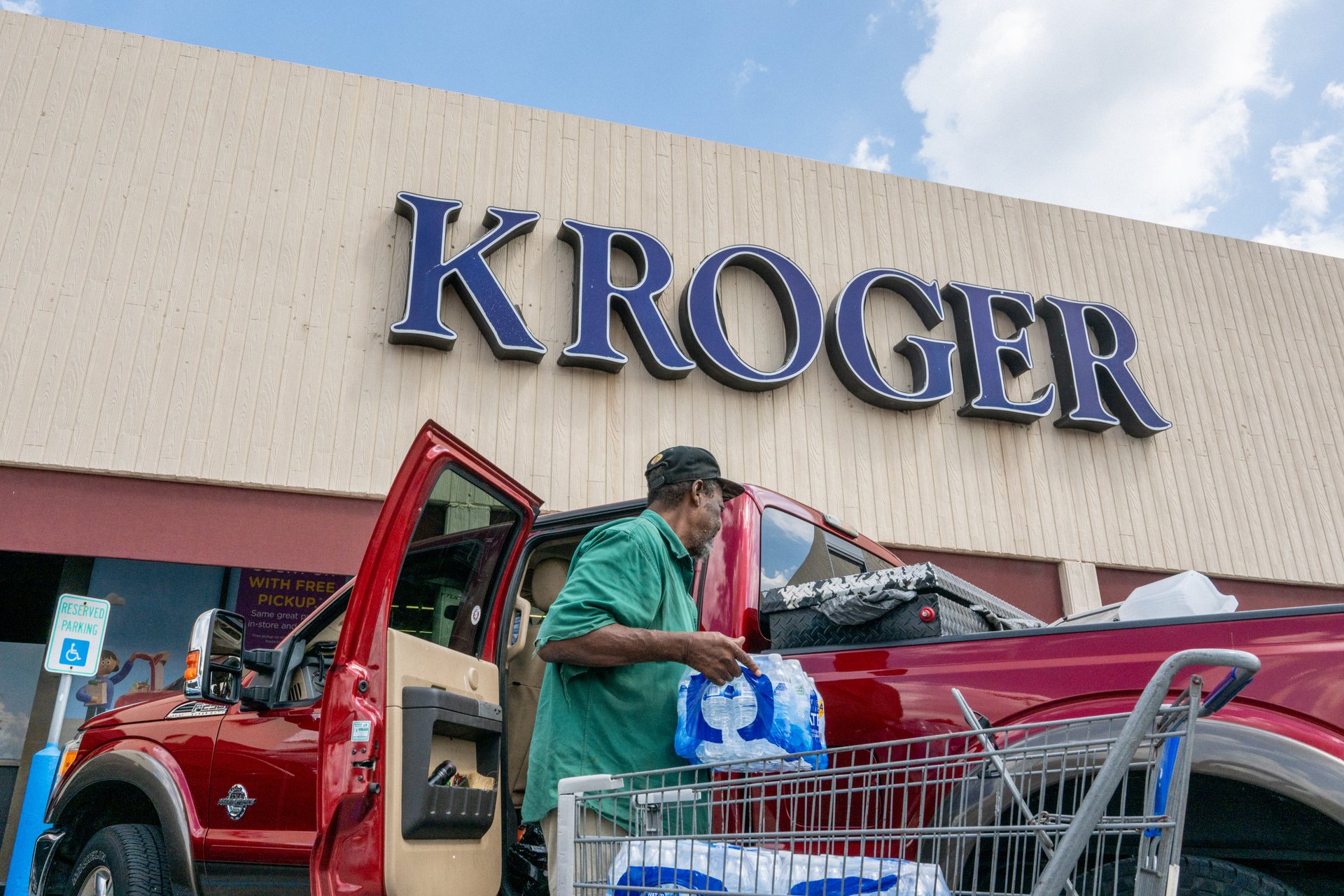Kroger and Albertsons say that merging will cut grocery prices. The FTC disagrees
Two of the largest grocery chains argue they'll negotiate better deals together

Kroger (KR) and Albertsons (ACI), two of the largest grocery chains in the U.S., are pushing for a $25 billion merger they claim will benefit consumers through lower grocery prices and more options, while giving the companies room to negotiate better deals with suppliers and streamline operations.
Suggested Reading
However, the Federal Trade Commission (FTC) strongly opposes the merger, arguing that consolidating these major players would stifle competition, potentially leading to higher prices for groceries and other household essentials for millions of Americans. The merger would reduce competition for grocery workers, diminishing their leverage to negotiate higher wages, better benefits, and improved working conditions.
Related Content
As Kroger and the FTC maintain their opposing stances, the impact of the merger on grocery prices remains uncertain. In early August, FTC Chair Linda Khan said the agency would launch an investigation into why prices and profits at grocery chains are still so high despite falling costs. Meanwhile, Democratic presidential candidate Kamala Harris pledged that, if elected, she would address high grocery bills by banning corporate price gouging, while empowering the FTC and state attorneys general to enforce substantial penalties.
Later in August, Kroger said it would reduce grocery prices by $1 billion, doubling its previous investment figure of $500 million in February. Moreover, Kroger said it was suing the FTC for illegally challenging the merger. Earlier this week, the FTC doubled down on its argument against the merger, claiming that Kroger would end up “swallowing” Albertsons in the deal. Notably, prices at Albertsons are 12% higher than they are at Kroger.
As inflation begins to cool, and consumers increasingly turn to big box retailers, the FTC’s position highlights the delicate balance between market power and competition. Meanwhile, Kroger’s proposed merger underscores the widespread impact a deal of that scope could have on the American consumer. The battle between the two has been ongoing.
In October 2022, Kroger said it planned to acquire Albertsons for $24.6 billion, marking one of the biggest merger proposals in U.S. history. Pending regulatory approval, the merged company would employ 700,000 individuals in 5,000 stores across 48 states. In February 2024, however, the supermarket chain was sued by the FTC, with the agency saying the deal would mean grocery price hikes for consumers and reduced competition.
When large companies merge, there is a risk of monopolization. When Amazon acquired Whole Foods for $13.7 billion in 2017, the FTC investigated the deal to assess its potential impact on competition. That was in part due to concerns regarding Amazon’s (AMZN) entry into physical grocery stores and whether it would affect market dynamics. However, after its review, the agency decided not to pursue further action, concluding that the merger would not sharply reduce competition.
That hasn’t always been the case. The 2015 Albertsons and Safeway merger, valued at $9.4 billion, did result in significant changes. The merger led to reduced competition in several U.S. regions and impacted local grocery markets. To address the concerns, the FTC ordered Albertsons to close hundreds of locations nationwide. Similarly, Kroger and Albertsons have suggested selling nearly 600 stores in a bid to increase the proposal’s appeal.
Market analysts and industry experts have mixed views on the merger. David Smith, a professor of economics at Pepperdine University’s Graziadio Business School, told Quartz that the impact of the merger would depend on various factors, including the specific market conditions in different regions and “the actions of the merged entity.”
Holmes Osborne, principal at money management firm Osborne Global Investments, Inc., told Quartz that that merged company could mean “a few hundred people would be laid off” and that savings would then boost profits.
“There is quite a bit of competition out there,” Osborne said. Kroger, however, has been faring pretty well. In March 2024, the FTC released a report that revealed Amazon, Kroger, and Walmart (WMT) – three of the largest grocery chains – had all increased food prices and gained a big profit due to pandemic-led supply chain disruptions.
But even so, “competing with Wal-Mart and Costco (COST) is tough so maybe a merger could be good for consumers as it will keep more grocers out there,” Osborne said.
